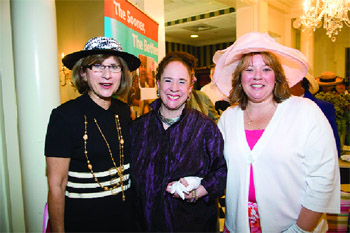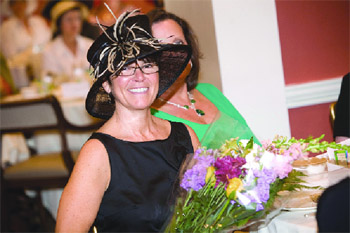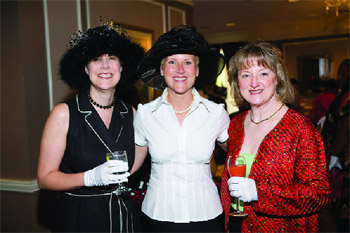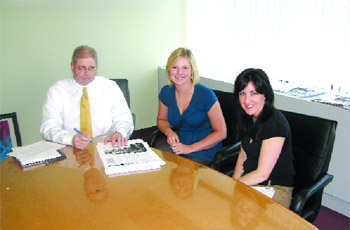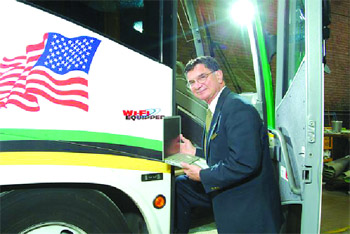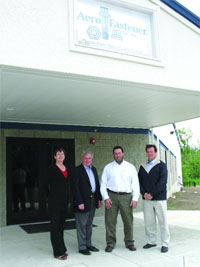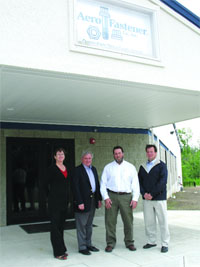| Amador, Manuuel
69 Sanderson St.
Springfield, MA 01107
Chapter: 7
Filing Date: 05/04/09 Antoine, Valarie D.
87 Elliot St., Apt. 4B
Springfield, MA 01105
Chapter: 7
Filing Date: 05/04/09 Badillo, Robert
Hague-Badillo, Megan K.
169 Conway St.
Greenfield, MA 01301
Chapter: 13
Filing Date: 05/14/09 Beauvais, Aimee L.
a/k/a Mominee, Aimee L.
11 Saint John St.
Palmer, MA 01069
Chapter: 7
Filing Date: 05/14/09 Beauvais, Scott A.
11 Saint John St.
Palmer, MA 01069
Chapter: 7
Filing Date: 05/14/09 Benson, Mercy B.
656 Dalton Division Road
Pittsfield, MA 01201
Chapter: 7
Filing Date: 05/05/09 Betts, Charles E.
16 Leatherleaf Circle
Springfield, MA 01109
Chapter: 7
Filing Date: 05/07/09 Bielinski, Robert M.
57 Belvidere Ave.
Feeding Hills, MA 01030
Chapter: 7
Filing Date: 05/14/09 Brassill, William V.
165 Wheeler Ave.
Springfield, MA 01118
Chapter: 7
Filing Date: 05/01/09 Briere, Dennis P.
Briere, Jean M.
61 John St.
Chicopee, MA 01013
Chapter: 13
Filing Date: 05/14/09 Bristol, Seth A.
7 Marshall St.
Greenfield, MA 01301
Chapter: 7
Filing Date: 05/12/09 Brown, Douglas M.
P.O. Box 715
West Warren, MA 01092
Chapter: 7
Filing Date: 05/13/09 Burgos, Kimberly Ann
3 Lovewell St.
Ware, MA 01082
Chapter: 7
Filing Date: 05/09/09 Buteau, Robert F.
140 Maple St.
Agawam, MA 01001
Chapter: 13
Filing Date: 05/14/09 Cafe Koko Inc.
Monette, Eugene Raymond
111 Winchester Road
Northfield, MA 01360
Chapter: 7
Filing Date: 05/12/09 Callahan, Rosemary D.
10 Dorchester Ave.
Pittsfield, MA 01201
Chapter: 13
Filing Date: 05/06/09 Caloon, Thomas J.
Caloon, Kathleen M.
125 Bemis Ave.
Chicopee, MA 01020
Chapter: 7
Filing Date: 05/12/09 Camacho-Rivera, Carmen
5E Westminster St.
Westfield, MA 01085
Chapter: 7
Filing Date: 05/08/09 Camilleri, Thomas J.
155 Main Road
Westhampton, MA 01027
Chapter: 7
Filing Date: 05/13/09 Cardaropoli, Nancy
P.O. Box 854
East Longmeadow, MA 01028
Chapter: 7
Filing Date: 04/30/09 Castellano, Lucy Elena
147 Parallel St.
Springfield, MA 01104
Chapter: 7
Filing Date: 05/12/09 Ciancotti, Anthony J.
29 Dana St.
Westfield, MA 01085
Chapter: 7
Filing Date: 05/15/09 College Tuition Landscaping
Morrisino, Michael W.
15 Anthony Dr.
East Longmeadow, MA 01028
Chapter: 7
Filing Date: 05/13/09 Colon, Yadira
573 State St., Apt. 40
Springfield, MA 01109
Chapter: 7
Filing Date: 05/04/09 Cotto, Nicole R.
71 Jonquil Dr.
Springfield, MA 01119
Chapter: 7
Filing Date: 05/05/09 Cruz, Jorge
Cruz, Nelly
14 Parker St.
Holyoke, MA 01040
Chapter: 7
Filing Date: 05/06/09 Cuoco, John A.
Cuoco, Josephine
136 Pine Acre Road
Springfield, MA 01129
Chapter: 13
Filing Date: 04/30/09 Cusson, Robin F.
1447 Cape St.
Williamsburg, MA 01096
Chapter: 7
Filing Date: 05/06/09 Cwiok, Kathleen E.
2064 Main St.
Three Rivers, MA 01080
Chapter: 7
Filing Date: 05/13/09 Dagenais, Joanna
32 Sterling St
Springfield, MA 01107
Chapter: 7
Filing Date: 05/11/09 Dargie, Arthur P.
Dargie, Sheila L.
26 Kately Lane
North Adams, MA 01247
Chapter: 7
Filing Date: 05/14/09 Davis, Penelope R.
5 Meadowood Dr.
South Deerfield, MA 01373
Chapter: 13
Filing Date: 05/09/09 Dodge, Bobby J.
491 Franklin St. Ext.
Agawam, MA 01001
Chapter: 7
Filing Date: 05/04/09 Dressel, Lee Ann
16 Worcester St
West Springfield, MA 01089
Chapter: 7
Filing Date: 05/07/09 Dymnicki, Eric S.
Dymnicki, Natasha I.
77 Sunrise Ter.
Springfield, MA 01119
Chapter: 7
Filing Date: 05/08/09 Foreman, Jon C.
401 Gaffney Road
Oakham, MA 01068
Chapter: 7
Filing Date: 04/30/09 Francisco, Edgar L.
18 Knollwood St.
Springfield, MA 01104
Chapter: 7
Filing Date: 05/06/09 Garcia, Juan F.
7 Upper Church St.
West Springfield, MA 01089
Chapter: 7
Filing Date: 05/05/09 Garvey, Dawn Marie
443 Wihton St.
Springfield, MA 01118
Chapter: 7
Filing Date: 05/15/09 Gaspardi, Dianne C.
a/k/a Marks, Dianne C.
3 Myrtle St., Apt. B9
Adams, MA 01220
Chapter: 7
Filing Date: 05/05/09 Geib, Richard Vincent
368 Houghton St.
North Adams, MA 01247
Chapter: 7
Filing Date: 05/04/09 Gendron, Donna L.
5 Applewood Lane
South Hadley, MA 01075
Chapter: 7
Filing Date: 05/07/09 Goodyear, Mark Thomas
Goodyear, Cindy Marie
331 Tiffany St.
Springfield, MA 01108
Chapter: 7
Filing Date: 05/07/09 Gravel, Jean B.
45 West St.
Greenfield, MA 01301
Chapter: 7
Filing Date: 05/12/09 Griffin, Alice J.
15 Denette St., Apt. 1R
Chicopee, MA 01020
Chapter: 7
Filing Date: 05/04/09 Grise, Francis J.
34 Margaret St.
Monson, MA 01057
Chapter: 7
Filing Date: 04/30/09 Griswold, Gary W.
9 Oak Lane
Adams, MA 01220
Chapter: 7
Filing Date: 05/12/09 Hadden, James J.
Hadden, Jody A.
12 First St.
Adams, MA 01220
Chapter: 7
Filing Date: 05/05/09 Hall, Jamie J.
78 Mansfield St
Springfield, MA 01108
Chapter: 7
Filing Date: 05/12/09 Hastie, Vera A.
100 Brianna Lane
Springfield, MA 01129
Chapter: 7
Filing Date: 05/08/09 Hatch, Carl N.
Hatch, Carolyn G.
12 Gale St.
Feeding Hills, MA 01030
Chapter: 7
Filing Date: 05/05/09 Hebert, David B.
Hebert, Constance R.
478 Amostown Road
West Springfield, MA 01089
Chapter: 7
Filing Date: 05/15/09 Hernandez, Fermin
1831 Northampton St.
Holyoke, MA 01040
Chapter: 7
Filing Date: 05/15/09 Jedrzejczyk, Wieslaw
Jedrzejczyk, Susan R.
1150 Dunhamtown Road
Brimfield, MA 01010
Chapter: 7
Filing Date: 05/08/09 Jones, Irving M.
25 Dartmouth St.
Pittsfield, MA 01201
Chapter: 7
Filing Date: 05/05/09 Joseph, Martha Y.
33 Salem St., Apt. 2B
Springfield, MA 01105
Chapter: 7
Filing Date: 05/15/09 Kelleher, Michael T.
309 East Road
P.O. Box 961
Warren, MA 01083
Chapter: 7
Filing Date: 05/11/09 Lamothe, Andrew
145 Lancaster Ave.
West Springfield, MA 01089
Chapter: 7
Filing Date: 05/14/09 Lapointe, Ramon G.
Lapointe, Linda C.
24 Charles St.
Westfield, MA 01085
Chapter: 7
Filing Date: 05/12/09 | | Leighton, Stephanie
a/k/a Winfield, Stephanie
Leighton, Blake
126 Union St., Unit 1015
Westfield, MA 01085
Chapter: 7
Filing Date: 05/04/09 Lemaine, Dianne J.
21 Adams St.
Easthampton, MA 01027
Chapter: 7
Filing Date: 05/13/09 Letourneau, Alfred R.
Letourneau, Valerie L.
65 Pitroff Ave.
South Hadley, MA 01075
Chapter: 7
Filing Date: 05/11/09 Lincoln, Ann E.
92 Commercial St.
Adams, MA 01220
Chapter: 13
Filing Date: 05/08/09 Lincoln, Sharon L.
92 Commercial St.
Adams, MA 01220
Chapter: 13
Filing Date: 05/08/09 Lugo, Elizabeth
a/k/a Garcia, Elizabeth
337 Chestnut St.
Holyoke, MA 01040
Chapter: 7
Filing Date: 05/01/09 Matthews, Robert L.
Matthews, Rachel E.
a/k/a Vadnais, Rachel E.
59 New Ludlow Road, Apt. 2C
Chicopee, MA 01020
Chapter: 7
Filing Date: 05/14/09 Mattioli, Christopher D.
Mattioli, Barbara A.
47 Breakneck Road
Sturbridge, MA 01566
Chapter: 7
Filing Date: 05/11/09 McCormack, Thomas D.
38 Hilltop Road
Longmeadow, MA 01106
Chapter: 13
Filing Date: 05/14/09 McGregor, James
28 Hamilton Circle
Feeding Hills, MA 01030
Chapter: 7
Filing Date: 05/01/09 Medina, Danny S.
Medina, Judy A.
20 Baird Trace
Springfield, MA 01118
Chapter: 7
Filing Date: 05/11/09 Melendez, Brenda M.
73 Phillipston Road
Barre, MA 01005
Chapter: 7
Filing Date: 04/30/09 Mendez, Pedro J.
Mendez, Carmen R.
21 Bowers St.
Apt. 309
Holyoke, MA 01040
Chapter: 7
Filing Date: 05/13/09 Montalban, Norma L.
a/k/a Guerra, Norma L.
64 Myrtle St., Apt. 21
Indian Orchard, MA 01151
Chapter: 7
Filing Date: 05/04/09 Morf, David W.
Morf, Mary West
136 Dartmouth St.
Holyoke, MA 01040
Chapter: 7
Filing Date: 05/08/09 Moriarty, Lori Marie
8 Noble St.
Westfield, MA 01085
Chapter: 7
Filing Date: 05/12/09 Morrison, Ralph Edmund
Morrison, Sylvia
768 Wheelwright Road
Barre, MA 01005
Chapter: 7
Filing Date: 05/13/09 New Leaf Consulting, LLC
Ruppart, Randall Earl
10 West St.
South Deerfield, MA 01373
Chapter: 7
Filing Date: 05/12/09 Oliver, Lorna E.
567 Dickinson St., Apt 2
Springfield, MA 01108
Chapter: 7
Filing Date: 04/30/09 Oliveras, Jose L.
P.O. Box 1365
Holyoke, MA 01041
Chapter: 7
Filing Date: 05/04/09 Ottaviani, Stephen C.
59 Fox Hill Road
Springfield, MA 01118
Chapter: 7
Filing Date: 05/11/09 P.C. Surplus
Professional Properties
Lynch, Chad T.
20 Gerald St.
Springfield, MA 01109
Chapter: 7
Filing Date: 05/13/09 Parent, Roger F.
Parent, Teri L.
70 Vienna Ave.
Ludlow, MA 01056
Chapter: 7
Filing Date: 05/05/09 Peele, Shane Carson
Peele, Dianna Lee
86 Stafford Holland Road
Wales, MA 01081
Chapter: 7
Filing Date: 05/06/09 Picard, Robert A.
Picard, Kim M.
16 Hillside Ter.
Orange, MA 01364
Chapter: 13
Filing Date: 05/11/09 Pinkney, April M.
a/k/a Jackson, April Michelle
36 Manhattan St.
Springfield, MA 01109
Chapter: 13
Filing Date: 05/05/09 Pou, Carmen M.
319 Chestnut St.
Holyoke, MA 01040
Chapter: 7
Filing Date: 05/04/09 Prior, Theresa
43 Derryfield Ave.
Springfield, MA 01118
Chapter: 7
Filing Date: 04/30/09 Przypek, Mark J.
Przypek, Robin L.
117 Glazier Road
Barre, MA 01005
Chapter: 7
Filing Date: 05/04/09 Pumarejo, Joel
Pumarejo, Aurora
1082 Plumtree Road
Springfield, MA 01119
Chapter: 7
Filing Date: 05/01/09 Reeds Landing
807 Wilbraham Road
Springfield, MA 01109
Chapter: 11
Filing Date: 05/04/09 Rivera, Jesus
Irizarry, Enid A.
a/k/a Rivera, Enid A.
104 Acrebrook Road
Springfield, MA 01129
Chapter: 7
Filing Date: 05/01/09 Rivera, Jose M.
Rivera, Julia
156 Stuart St.
Springfield, MA 01119
Chapter: 7
Filing Date: 05/04/09 Rivera, Vivian E.
215 Cedar Swamp Road
Monson, MA 01057
Chapter: 7
Filing Date: 05/04/09 Robbins, Kelly L.
61 East Palmer Park Dr.
Palmer, MA 01069
Chapter: 13
Filing Date: 05/06/09 Ruemmele, Ruben
Valle, Raquel
35 Converse St.
Springfield, MA 01108
Chapter: 7
Filing Date: 05/04/09 Ryan, Gail Davis
735 Memorial Dr., Lot 9
Chicopee, MA 01020
Chapter: 7
Filing Date: 05/15/09 Sadowsky, Joseph P.
350 West St., Lot 17
Ludlow, MA 01056
Chapter: 7
Filing Date: 04/30/09 Scordino, Vincent P.
107 Colony Dr.
East Longmeadow, MA 01028
Chapter: 7
Filing Date: 05/15/09 Seklecki, Joseph J.
32 Wilson Ave.
Westfield, MA 01085
Chapter: 7
Filing Date: 05/08/09 Sheremeta, James P.
141 Regal St.
Springfield, MA 01118
Chapter: 13
Filing Date: 05/01/09 Sibley, Kenneth G.
62 Elm St.
East Longmeadow, MA 01028
Chapter: 7
Filing Date: 05/07/09 Smith, Joseph E.
31 Price St.
Springfield, MA 01104
Chapter: 7
Filing Date: 05/01/09 Spagnuolo, Judith A.
42 Lombard Ave.
East Longmeadow, MA 01028
Chapter: 7
Filing Date: 05/04/09 Springer, William H.
Springer, Cynthia L.
a/k/a Petri, Cynthia L.
45 Willow St., Apt. 43
Springfield, MA 01103
Chapter: 7
Filing Date: 04/30/09 Sprong, Constance A.
1679 West Road
Williamsburg, MA 01096
Chapter: 7
Filing Date: 05/08/09 Stribley, Lawrence C.
Stribley, Laurie A.
617 Leyden Road
Greenfield, MA 01301
Chapter: 7
Filing Date: 05/12/09 Titenko, Sergey V.
101 River Rd.
West Springfield, MA 01089
Chapter: 7
Filing Date: 05/06/09 Torres, Reynaldo
44 Worcester Ave.
Springfield, MA 01107
Chapter: 7
Filing Date: 05/13/09 Vazquez, Gilberto
Vazquez, Rosa
69 Worcester Ave.
Springfield, MA 01107
Chapter: 7
Filing Date: 05/05/09 Velazquez, Luz M.
40 Edmund Wynne Circle
Springfield, MA 01109
Chapter: 7
Filing Date: 05/04/09 Visneau, Lynne A.
154 Victoria St.
Springfield, MA 01104
Chapter: 7
Filing Date: 05/15/09 Vitali, Donald J.
Vitali, Antoinette N.
19 Elmwood Ave.
North Adams, MA 01247
Chapter: 7
Filing Date: 05/12/09 Warren, Garrett Andrew
27 Trafalgar Sq.
South Barre, MA 01704
Chapter: 7
Filing Date: 05/06/09 Wilson, Deborah Ann
55 Oak Courts
Greenfield, MA 01301
Chapter: 7
Filing Date: 05/12/09 |



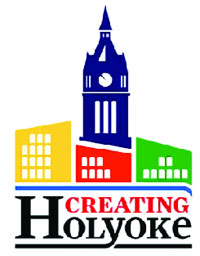

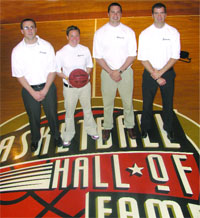
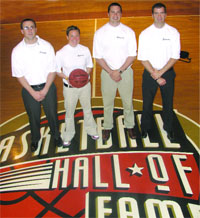
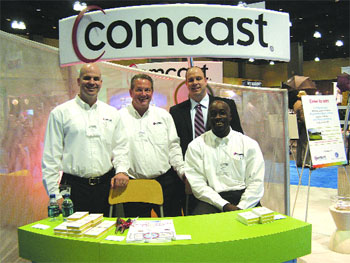
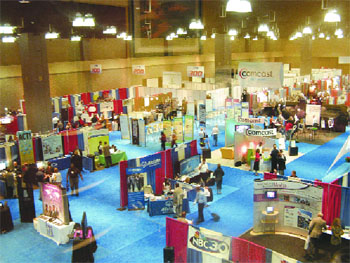
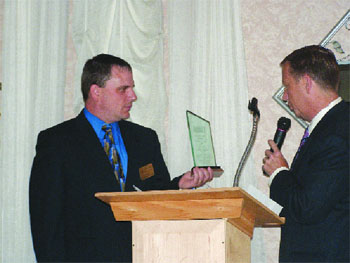
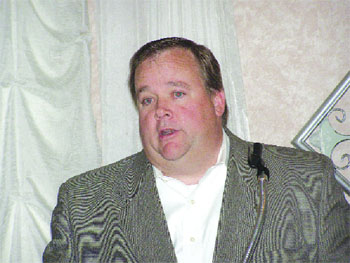
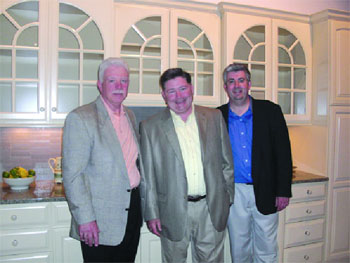
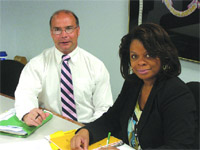
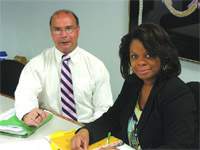
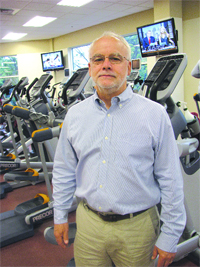
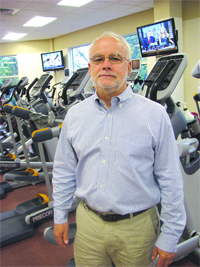


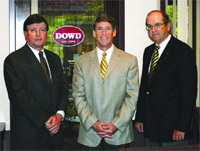
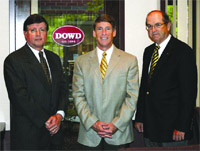
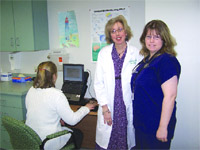
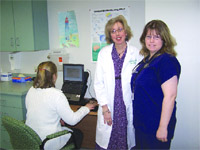
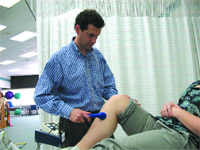
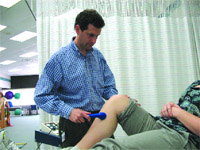
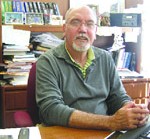
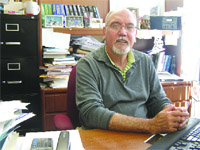
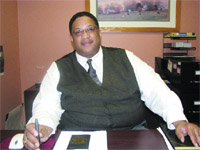
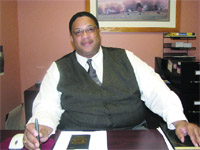
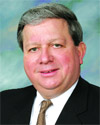 Gary G. Breton, Esq. is a partner with Bacon Wilson, P.C., and a member of its Banking and Finance Department; (413) 781-0560;
Gary G. Breton, Esq. is a partner with Bacon Wilson, P.C., and a member of its Banking and Finance Department; (413) 781-0560;